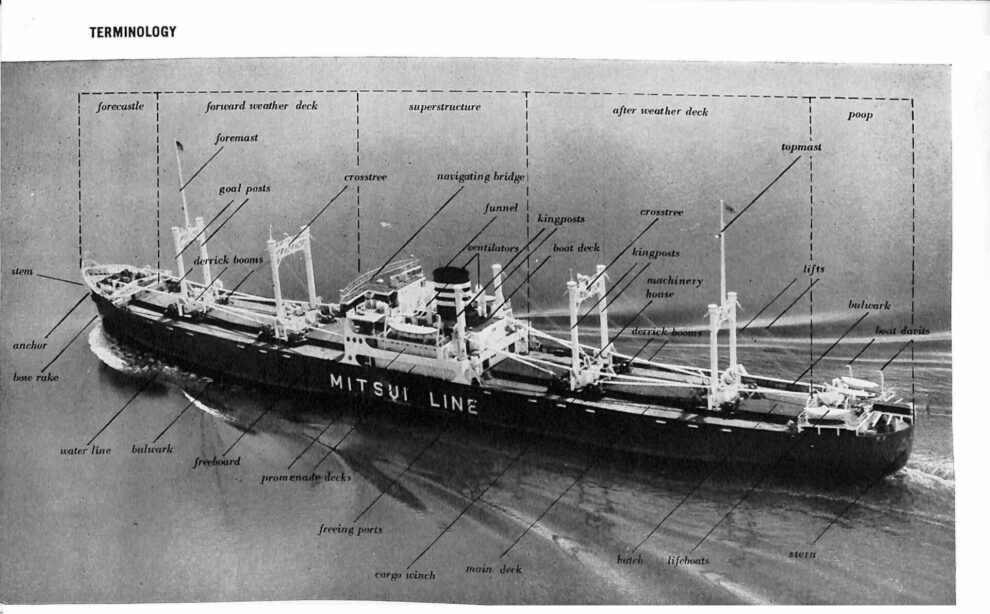On August 12, 2023, the Russian patrol ship Vasily Bykov intercepted the Turkish-owned, Palau-flagged merchant ship Sukru Okan in the Black Sea between its point of embarkation in Chalkis, Greece and its destination of Izmail, Ukraine. The incident occurred less than one month after Russia announced its withdrawal from the UN-brokered Black Sea Grain Initiative (BSGI), a topic Articles of War has previously covered. It also occurred two days after Ukraine’s Navy announced a “humanitarian corridor” for merchants transiting the Black Sea.
The warship Bykov reportedly hailed the 283-foot-long merchant vessel via radio and requested to inspect her cargo, but the captain ignored the message. In response, the Russians fired warning shots (a fact disputed by at least one source) and dispatched a Kamov Ka-29 helicopter to hover near the Okan’s deck. Russian sailors boarded the vessel and stormed its bridge with rifles drawn, forcing the captain and members of his crew to kneel and, later, to sit on the ship’s deck. The Russian sailors inspected Okan’s cargo for contraband but, after finding none, allowed her to complete the trip to Ukraine. While the precise location of the incident is unknown, it most likely occurred in Bulgaria’s exclusive economic zone (EEZ).
Ukraine’s government immediately condemned Russia’s boarding and search of Sukru Okan. A senior advisor to President Volodomyr Zelensky claimed that the incident was a “clear violation of international law of the sea, an act of piracy and a crime against civilian vessels of a third country in the waters of other states.”Additionally, Ukraine’s Ministry of Foreign Affairs claimed that “the Russian Navy grossly violated the UN Charter, the UN Convention on the Law of the Sea, and other norms of international law.”
The U.S. government also issued a statement criticizing the search. Ambassador Robert Wood, the Alternate U.S. Representative for Special Political Affairs at the United Nations, “strongly condemned” the Russian Navy for firing “shots at the Sukru Okan cargo vessel.” Ambassador Wood called on Russia to “comply with its international legal obligations and respect freedom of navigation.” In addition, retired U.S. Navy Admiral and former NATO Supreme Allied Commander James Stavridis argued that “Russia’s actions in the international waters of the Black Sea create a real risk of escalating this to a war at sea.”
In this post, we examine the international law applicable to wartime “visit, board, search, and seize” (VBSS) operations. Based on what we know of the Sukru Okan incident, we conclude (and echo this Articles of War post) that from a legal perspective, the condemnations of Russia’s boarding are misplaced. While there is no doubt that Russia’s illegal war of aggression has caused suffering in Europe and elsewhere and that the Russian military has repeatedly violated the law of armed conflict, it appears that this particular operation complied with the international laws governing the belligerent right of visit and search.
A Belligerent’s Right to Visit, Board, Search, and Seize
During armed conflict, commanders may exercise the right of “visit and search” to determine a merchant vessel’s true character (enemy or neutral) and to verify the nature of its cargo, the manner of the vessel’s employment, and other facts bearing on its relationship to the armed conflict (see e.g., DoD Law of War Manual, § 15.13; Commander’s Handbook, § 7.6). As the Newport Manual on the Law of Naval Warfare explains, “the right of belligerents to visit and search is a time-honored exception to the right of freedom of the seas” (para. 9.9). A belligerent’s VBSS right is not without limits, however, and judging compliance requires a consideration of the location, circumstances, and process of the visit and search.
The belligerent right of visit (i.e., board) and search only applies outside of neutral jurisdictions (e.g., in international waters or in the territorial waters of parties to the conflict). It does not apply in neutral sovereign waters, i.e., in internal waters, territorial sea, or archipelagic waters (Newport Manual § 11.3.2.2; Commander’s Handbook § 7.3.6). Importantly, a neutral State’s contiguous zone (CZ) and EEZ do not constitute neutral sea areas; rather, the CZ and EEZ are non-neutral international waters (Australian Manual paras. 6.46–6.47, 11.16; NWIP 10-2 § 502; Commander’s Handbook §§ 7.4, 7.6; UK Manual paras. 13.7, 13.91–13.94).
Therefore, belligerents may lawfully conduct hostilities and engage in other belligerent rights like “visit and search” in the CZ and EEZ of neutral States (see e.g., the UN Convention on the Law of the Sea (UNCLOS), art. 58 and an explanation of the law’s application in the EEZ here). Indeed, U.S. forces routinely conducted offensive operations from foreign EEZs during the global war on terror. Consequently, Russia’s Navy was entitled to visit and search Sukru Okan in the Bulgarian EEZ. Had the search occurred in Bulgaria’s territorial waters (i.e., within 12 nautical miles of its baseline) or in the territorial waters of any other neutral State, the operation would have violated UNCLOS, to which Russia is a party, and customary international law.
Circumstances
While belligerent States must not, so far as possible, interfere with neutral trade or neutral freedom of navigation, a belligerent warship may board and search a neutral vessel if its commander reasonably suspects that the neutral vessel is engaged in one of the following activities:
1. Acting on behalf of the enemy or operating directly under enemy control, orders, charter, employment, or direction;
2. On a voyage especially undertaken with a view to transport individual passengers who are embodied within the armed forces of the enemy;
3. Carrying contraband;
4. Presenting irregular or fraudulent documents, lacking necessary documents, or destroying, defacing, or concealing documents;
5. Breaching or attempting to breach a blockade;
6. Violating regulations established by a belligerent in the immediate area of naval operations;
7. Communicating information in the interest of the enemy;
8. Engaging in activity rendering it a military objective; or
9. Such other violations as may from time to time be recognized in law.
Neutral merchant vessels are only exempt from visit and search if the following conditions are satisfied:
1. The vessel is bound for a neutral port under the convoy of an accompanying neutral warship of the same nationality;
2. The accompanying warship warrants that the vessel is carrying no contraband; and
3. The convoy commander provides such information about the vessel as would otherwise have been obtained through visit and search.
A few points merit elaboration here. First, with respect to the “reasonable suspicion” standard, State practice suggests (contrarary to San Remo Manual, para. 118) that there is no threshold standard of reasonable suspicion before a belligerent can exercise the right of visit and search of a neutral vessel or aircraft.
Second, most States agree that a neutral merchant ship acquires enemy character if: (1) it is not entitled under the domestic law of the respective State to fly its flag; (2) it is under the orders or control of an agent placed on board by the enemy government; (3) it is in the exclusive employment of the enemy government; (4) it operates directly under enemy control, orders, charter, employment, or direction; (5) it is owned by enemy nationals or enemy corporations; (6) it transfers from an enemy flag to a neutral flag before or after the outbreak of hostilities, and such transfer is made to evade the consequences to which an enemy vessel is exposed; (7) it takes a direct part in the hostilities; or (8) it is exclusively engaged in the transport of enemy troops or transmits intelligence in the interest of the enemy (see, e.g., the 1909 London Declaration on the Laws of Naval War, arts. 46, 55-56; Newport Manual, § 3.9.2; and DoD Law of War Manual, §§ 15.14.2.1, 15.15.1).
Third, it is important to note that merchant vessels are not prohibited from carrying contraband. However, the carriage of any item that may be of use to the enemy in waging war heightens the risk of the merchant vessel being visited, searched, captured as a prize, or even treated as a military objective. During the Second World War, for example, some British merchant ships became targetable for resisting boardings and attempting to ram German U-boats.
In the present case, there is no indication that Sukru Okan acquired enemy character or carried contraband (after all, Russia permitted the vessel to proceed), but Sukru Okan was not exempt from Russia’s right to visit and search. The vessel was bound for Izmail, Ukraine (despite some conflicting reports that its destination was Sulina, Romania), and the captain reportedly ignored the Russian Navy’s initial radio calls. While we cannot comment on whether Russia’s boarding of Sukru Okan was based on a reasonable suspicion, in situations of doubt, commanders may exercise the right of visit and search to determine the nature of a vessel’s activity. Finally, according to one report, Russia has not published a contraband list, an omission that heightens the risk of miscalculation for merchant vessels.
Process
Generally speaking, before requiring a vessel to submit to a visit and search, a belligerent warship should hoist its own colors (if not already aloft) and summon the merchant vessel (e.g., bridge to bridge radio) (Newport Manual, § 9.9; Commander’s Handbook, § 7.6.1). The contact vessel, if neutral, is bound to stop and display its own colors. If the contact vessel fails to stop, it may be pursued, and force may be employed to compel it to stop. Where a vessel actively resists visit and search, it may render itself a lawful military objective and, therefore, a target for attack (Commander’s Handbook, § 7.6.1). Merchant vessels may be diverted to a belligerent controlled port for the exercise of visit and search, where visit and search at sea is impossible or unsafe. In this case, the Russian Navy reportedly hailed Sukru Okan, fired warning shots to compel it to stop, embarked a boarding party via helicopter, searched the vessel while the crew sat on the deck, and later disembarked, allowing the vessel to proceed. On its face, it appears Russia followed VBSS procedures that the U.S. military itself practices.
Implications of Ukraine’s “Humanitarian Corridor”
Ukraine’s unilateral implementation of a “humanitarian corridor” in the Black Sea begs an important question: does the corridor impact Russia’s belligerent right to visit and search merchant vessels?
As background, on August 10, 2023, Ukraine’s Navy announced that it established a “humanitarian corridor” in the Black Sea to enable the departure of merchant ships stuck in Ukrainian ports since Russia’s invasion in February 2022. The announcement did not specify how the corridor would be implemented or (more importantly) defended, but less than a week later, on August 16, the container ship Joseph Schulte (Hong Kong-flagged and partly-owned by a German company) became the first ship to successfully sail through the corridor. In its transit from Odesa, the ship appears to have remained inside the territorial seas of Bulgaria and Romania, both NATO Member States. There is no indication that Russia attempted to visit or search Joseph Schulte during its transit.
From a legal perspective, Ukraine’s unilateral announcement of a maritime safe passage corridor does not impact Russia’s right to visit and search merchant vessels transiting non-neutral waters. While contemplated under international law in certain settings, humanitarian corridors depend on negotiated agreements between parties to a conflict (often with the help of groups like the International Committee of the Red Cross) to allow for the safe passage of people or things through a particular area for a specified period of time. Land-based bilateral humanitarian corridors have previously been employed elsewhere in Ukraine and, early in the conflict, Russia (at the urging of the International Maritime Organization) unilaterally announced its own humanitarian maritime corridor for merchants departing Ukrainian ports on the Black Sea. But Russia has not agreed to Ukraine’s new humanitarian corridor in the Black Sea, and Ukraine’s unilateral declaration does not abrogate Russia’s right of visit and search.
Nevertheless, from a practical standpoint, how and where Ukraine chooses to execute the humanitarian corridor may well impact Russia’s opportunities to exercise the belligerent right of VBSS. For example, the Joseph Schulte reportedly remained inside Bulgaria’s and Romania’s territorial seas. Accepting that Bulgaria and Romania are not parties to the Russia-Ukraine conflict, Russia did not have a right to visit or search Joseph Schulte during its transit through the territorial seas of those neutral States. While it may be more expensive, Joseph Schulte’s route should prove instructive for shipping companies seeking to learn from the Sukru Okan incident and mitigate future risk in the Black Sea. Indeed, Ukraine has since sailed a second vessel through the new corridor and reportedly intends to promote the use of this route as a way to recommence large-scale grain shipments that were halted following the collapse of the BSGI.
Still, moving forward, it is important to note that Russia retains the right to undertake self-help enforcement actions if it believes Ukraine or other States are violating the law of neutrality (for example, by using neutral Bulgarian or Romanian waters for the transport of contraband or military materiel to a belligerent) and that those coastal States are unwilling or unable to detect or expel the offending vessel(s) from neutral waters (Commander’s Handbook, § 7.3.5).
Conclusion
The Sukru Okan incident is compelling because it appears to expose a fundamental misunderstanding of a well-settled area of international law. As the RAND Corporation pointed out in its 2020 report Multiple Dilemmas, “insufficient legal expertise” threatens to undermine the success of future U.S. multi-domain operations, particularly in the maritime domain. Russia’s visit and search of the Sukru Okan is an opportunity for the U.S. military legal community to grapple with one legal issue that may arise in a future war in the maritime domain.
Indeed, the U.S. Navy, and specifically the Naval Special Warfare community, considers VBSS to be a core competency. But Navy SEALs are not the only U.S. servicemembers training to conduct VBSS operations. The U.S. sea services (including Navy, Marine Corps, and Coast Guard) regularly train with foreign partners on VBSS interoperability. Reconnaissance Marines, Marine Raiders, Army Green Berets, and the Coast Guard’s Maritime Security Response Teams also train to do exactly what the Russian sailors did in the Black Sea on August 12. Further, the Chinese People’s Liberation Army (Navy) is also conducting VBSS training in the South China Sea, one of the world’s busiest commercial sea lanes. It is essential that judge advocates and civilian officials supporting operations understand and be prepared to articulate the legal basis for those operations.
Source : Articles of War















